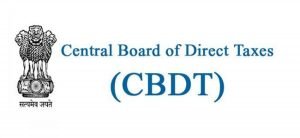
The deadline to fill Income Tax Return (ITR) is approaching! Are you still wondering how much tax you will have to pay if you had invested in Mutual Funds and how to pay the tax? This article will surely help you.
Mutual Funds can be divided into 2 categories on the basis of how they are taxed:
(i) Equity Mutual Funds: Schemes that invest at least 65% of the money in equities are classified as Equity Funds.
(ii) Non-Equity Mutual Funds: Mutual Fund Schemes that invest less than 65% of the corpus in equities are classified as Non-Equity Mutual Funds.
Lets us see the taxes levied on by one:
1. Capital Gains Tax
Capital Gains Tax is applicable only when you sell and only on the gains made on the units being sold. If you make profit on the sale, it is Capital Gain. If you make loss on the sale, it is Capital Loss. Capital Gains Tax is applicable only on Capital Gain.
To understand it better, we need to know what are long term and short term definitions for Equity & Non-Equity Mutual Funds.
Short Term: For Equity Funds if the period of holding the investment is less than 1 year and for Non-Equity Funds if the period of holding is less than 3 years, then it is considered as short term. The tax which is applicable on short term periods is known as Short Term Capital Gains(STCG) Tax.
Long Term: For Equity Funds if the period of holding the investment is more than 1 year and for Non-Equity Funds if the period of holding is more than 3 years, then it is considered as long term. The tax which is applicable on long term periods is known as Long Term Capital Gains(LTCG) Tax.
One thing to note that STCG/LTCG Tax will be charged irrespective of your income slab(except for STCG on Non-Equity MF). Let us now see the taxes:
Let us understand better with the help of few examples:
Eg 1: A person invested Rs 1000 and the sold his entire investment within 1 year for Rs 1120. So Capital Gain is Rs 120 and STCG Tax is applicable.
If it was an Equity MF, STCG Tax is 15% of Rs 120 ie Rs 18+Cess. For Non-Equity MF, the income will be added to your existing income and taxed as per the tax slab.
Eg 2: A person invested Rs 1000 and the sold his entire investment after 3 years for Rs 15,000. So Capital Gain is Rs 5,000 and LTCG Tax is applicable.
If it was an Equity MF, as Gain<1 Lakhs, so LTCG will be NIL. For Non-Equity MF, the the Cost Price(CP) will be first indexed(to take care of inflation say 7%). So, indexed CP will be Rs 12,250. So Capital Gains is Rs 2,750. LTCG Tax in this case will be 20% of Rs 2,750 ie Rs 550+Cess.
Eg 3: A person invested Rs 10,00,000 in an Equity MF and the sold his entire investment after 1 year for Rs 13,00,000. So Capital Gain is Rs 3,00,000 and LTCG Tax is applicable. So amount in excess of 1 Lakhs is Rs 2,00,000.
So, LTCG will be Rs 20,000+Cess.
NOTE: Cess is currently 4%.
2. Dividend Distribution Tax(DDT)
This tax is applicable only if you choose Dividend Payout plan. For Growth or Dividend Reinvestment plan, this tax tax is not applicable. In these schemes, dividend is paid out to investors periodically.
The main thing to note over here is dividends are paid to investors by AMC after deducting DDT. So, investors do not have to worry about taxes to be paid.
3. Securities Transaction Tax (STT)
This tax is applicable on redemption/switch of only Equity Mutual Funds. It is applicable at the rate of 0.001% of the transaction value i.e. Re 1 per 1 Lakh and is deducted by the Mutual Fund House itself. So, investors need not worry about it.
Now we learnt investors have to pay only Capitals Gain Tax in case he has Capital Gains. Now the next question arrives how to pay the Capital Gains tax?
You can pay the tax online on the website of Tax Information Network(TIN). Use Challan 280 (Self Assessment Tax) to pay your tax online or download the form to pay at banks. For online payment, you will have to choose 0021-Income Tax(other than Companies) on Tax Applicable and 300-Self Assessment Tax on Type of Payment. It has to be paid before filing Income Tax Return (ITR).
NOTE: You must adjust your Capital Losses from your Capital Gains and then pay tax on Net Capital Gains. For example, you made STCG of Rs 10,000 on one MF and Short Term Capital Loss of Rs 2,000 in another MF. So, your net STCG will be Rs 8,000.
There are a few restrictions on setting off of Capital Losses as follows:
(i) Capital Losses cannot be set off against any other head of income ie you cannot set off Capital Losses against Salary, Income from House Property etc.
(ii) Short Term Capital Losses can be set off against STCG and LTCG.
(iii) Long Term Capital Losses can be set off against LTCG only.
I hope this article will help you in calculating & paying your taxes correctly. Do comment if you have any other question.








